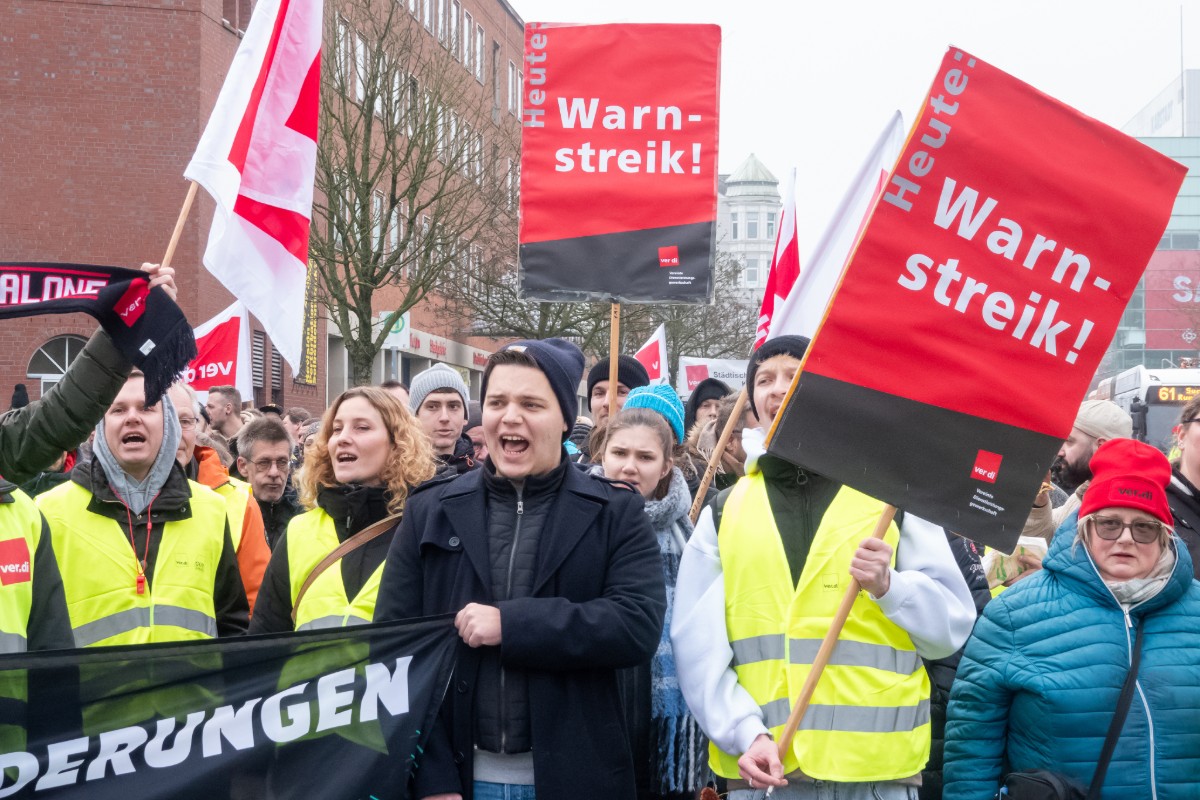Picking up your ID card, registering your flat or travelling to appointments by tram could be difficult for many people in western Germany on Thursday.
That's because trade union Verdi has called 'warning strikes' in the public sector in some cities across North Rhine-Westphalia. Strikes are mainly taking place on Thursday in the Ruhr and Rhineland, affecting city councils such as Bochum, Bottrop, Mönchengladbach and Siegen.
In Aachen and Mönchengladbach, commuters may also have to look for alternatives to buses and trains as workers there were called out on strike.
Some swimming pools and public theatres are also closed. Meanwhile, many daycare centres - or Kitas - will only offer emergency care.
In some cities, such as Herne, rubbish will not be collected for the rest of the week.
There may also be disruption in hospitals in Gummersbach, Waldbröl and Würselen.
Verdi has also called for warning strikes in various locations on Friday. In Cologne, for example, light rail services and almost all buses will be cancelled.
Employees of Kölner Verkehrs-Betriebe (KVB), SWB Bus und Bahn in Bonn and Rhein-Sieg-Verkehrsgesellschaft (RSVG) have been urged to walk out.
Public sector workers in several clinics in Bremen may also be hit by strike action on Thursday, while daycare centres are expected to be affected on Friday.
Meanwhile, a public warning strike affecting essential services hit Kiel in Schleswig-Holstein on Wednesday.
Why are strikes happening?
The warning strikes are being held in a dispute with employers over pay and conditions. Verdi wants public sector employees to receive an eight-percent pay rise - amounting to at least €350 more per month - and three additional days off due to the high workload.
The wave of strike action started this week after no agreement was reached in the first round of negotiations.

"Unfortunately, there is no offer from the employers," said union secretary Eric Lobach, explaining the reasons behind the warning strikes.
"The employers have had time since October to do their job and prepare an offer. They have not delivered."
The union says it aims for the industrial action to show how diverse the public sector is, and the importance of its 640,000 employees in NRW.
More post disruption
Meanwhile, Deutsche Post employees in letter, group and parcel delivery have been called out on strike at locations across Germany.
It comes after parcel delivery workers went on strike nationwide on Wednesday, and postal workers in selected letter centres walked out on Tuesday.
The action is the latest in what has become a series of postal strikes affecting Deutsche Post and DHL.
READ ALSO: Why Germany is seeing postal strikes almost every day
The strikes have been causing major disruption to post, with delivery delays to letters and parcels across Germany.
Among the demands from Verdi are a pay increase of seven percent for the 170,000 postal service employees and three extra vacation days.
"The warning strikes today and in the past few days show that the employees are prepared to fight for their demands," said Verdi deputy chairperson Andrea Kocsis on Thursday.
"Unchanged high living costs can only be met with significant wage increases. The ball is now in the employers‘ court."
However, Deutsche Post has previously signalled that it would struggle to fund wage hikes.

Comments